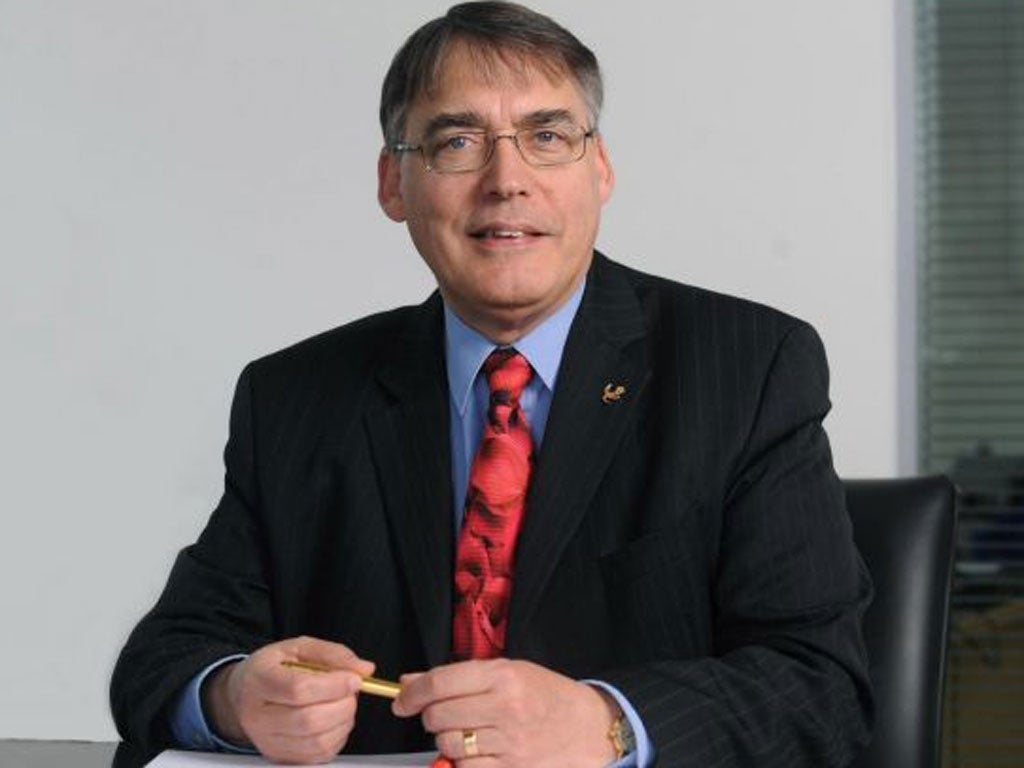I'll get places for the poor, says new university access watchdog

Your support helps us to tell the story
From reproductive rights to climate change to Big Tech, The Independent is on the ground when the story is developing. Whether it's investigating the financials of Elon Musk's pro-Trump PAC or producing our latest documentary, 'The A Word', which shines a light on the American women fighting for reproductive rights, we know how important it is to parse out the facts from the messaging.
At such a critical moment in US history, we need reporters on the ground. Your donation allows us to keep sending journalists to speak to both sides of the story.
The Independent is trusted by Americans across the entire political spectrum. And unlike many other quality news outlets, we choose not to lock Americans out of our reporting and analysis with paywalls. We believe quality journalism should be available to everyone, paid for by those who can afford it.
Your support makes all the difference.The new university access watchdog intends to seek wider-ranging powers to penalise universities which fail to meet targets for recruiting more disadvantaged students.
Professor Les Ebdon was confirmed as head of the Office for Fair Access (Offa) yesterday despite a backlash from Tory MPs and some academics.
His appointment prompted further outrage from Conservatives on the Commons committee which examined his selection, after he pledged to use the "nuclear option" of forcing universities to slash their fees if they did not improve access. The new powers he seeks could involve a sliding scale of penalties rather than a one-off fine, or forcing elite universities to lower their fees from £9,000 a year to £6,000.
Professor Ebdon, vice-chancellor of Bedfordshire University, said of his appointment: "I am passionate about access to higher education and strongly believe no one should be put off from going to university because of their family background or income."
His selection, confirmed by the Business Secretary Vince Cable, followed an attempt to veto it by some members of the Commons Business, Innovation and Skills Select Committee. Yesterday, Mr Cable was summoned by MPs to the Commons to explain his decision as a Conservative think-tank warned that giving Professor Ebon the job could be "harmful" to the students he is trying to help. A report by the Fair Access to University Group, made up of Tory MPs, said Professor Ebdon and Offa were pursing the "wrong" approach.
"It is clear that the problem lies not in universities' admissions policies but in the lack of adequate preparation being given to disadvantaged students throughout their secondary education," it concluded. Too many students were pushed into taking discredited vocational qualifications for a quick league table "fix" for their school, rather than being encouraged to pursue academic study, it added.
Graham Stuart, chairman of the Commons Education Select Committee, added: "We know the primary way to improve access for those from low income families is to raise their academic attainment at school, not play social engineering at university entrance."
Both Mr Cable and the Universities Minister, David Willetts, pledged support for Mr Ebdon yesterday, with Mr Willetts going so far as to say that the role of Offa would be strengthened. Mr Cable conceded, in a letter to Adrian Bailey, the Labour chairman of the Business, Innovation and Skills Select Committee, which tried to veto the appointment, that Professor Ebdon accepted that "he could perhaps have performed more effectively" at the hearing.
As a result of the committee's concerns, Professor Ebdon, 65, will be required to report back at regular intervals on the progress he is making.
Join our commenting forum
Join thought-provoking conversations, follow other Independent readers and see their replies
0Comments